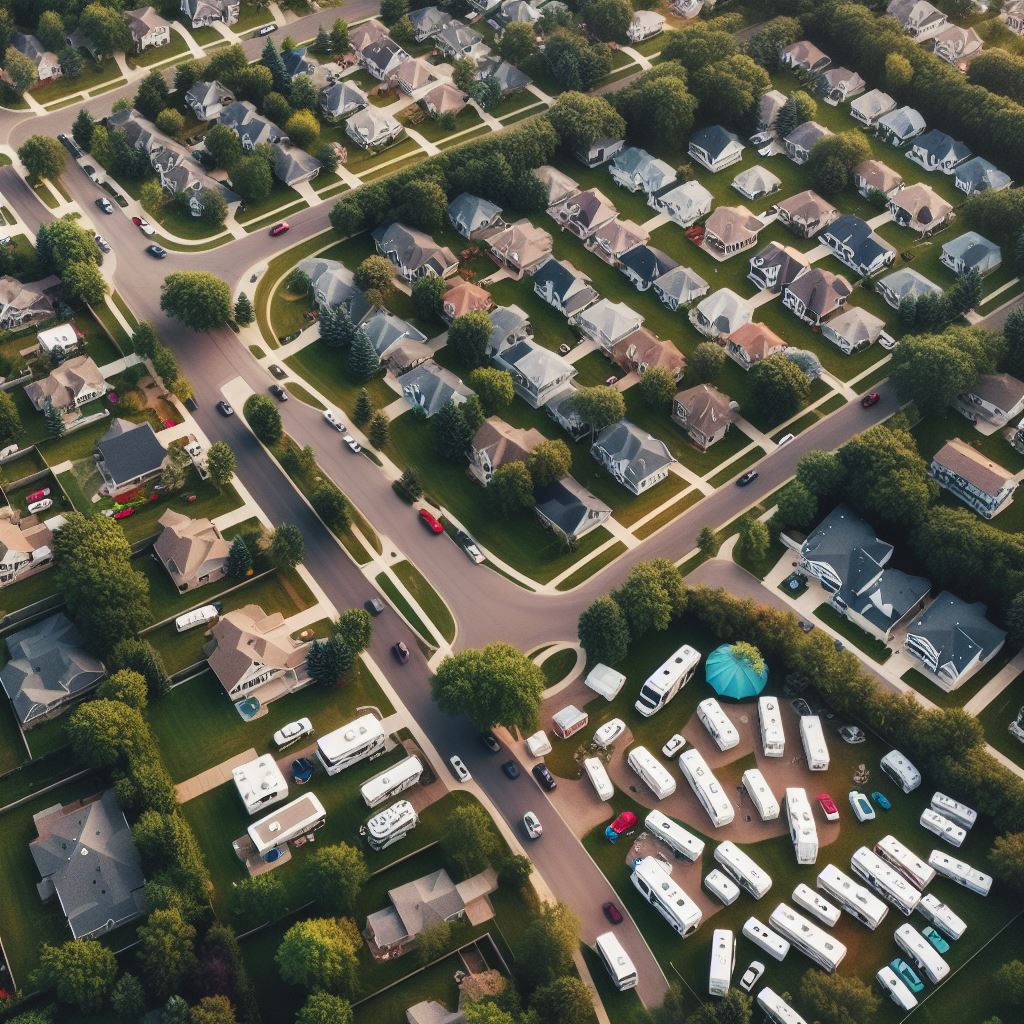
As a senior you have many choices as far as living arrangements. In this post, I will take a look at retirement communities. Retirement communities are not just about a place to live. It’s a significant lifestyle choice enabling seniors to enjoy their post-career years. In broad terms, these communities are designed for those who’ve hit the golden age of 55 or better, offering a mix of residential options, amenities, and services.
Variety is the Spice of Life
You’re going to find out about the sheer variety of retirement communities out there. From upscale retirement resorts brimming with luxury to more modest 55 and over mobile home communities and even RV parks, there’s a fit for different preferences and budgets.
Community living isn’t just about a smaller lawn to mow or fewer rooms to clean. It’s also about plugging into a social network, wrapping yourself in a blanket of safety and healthcare services, and downsizing responsibilities to upsize leisure and fun times.
I’m here to help you with navigating this terrain, weighing the benefits against the costs, and envisioning your life amidst peers in a setting that resonates with you. By the time we flow into the next section, you’ll be equipped with a starting point for considering if retirement community living is your cup of tea.
Advantages of Living in Retirement Communities
If you’re mulling over where to plant your feet after retirement, it’s worth considering the built-in perks of retirement communities. Let’s talk about what sets these places apart and how they can enhance your golden years.
First off, community and social engagement stand out as massive pluses. Retirement communities are bustling hubs tailored to keep loneliness at bay. In my opinion, making new friends and having a built-in social network right on your doorstep is a real game-changer.
Another benefit is the maintenance-free aspect of these communities. Imagine this: no more mowing the lawn, shoveling snow, or repairing a leaky faucet. Instead, you can fill your time with hobbies and activities that you actually enjoy — that’s the retirement dream, right?
Feeling Safe and Secure
Security is often at the top of the list for retirees, and fortunately, retirement communities are designed with safety in mind. With things like gated access, on-site security personnel, and emergency response systems, you can sleep a little easier.
And let’s not forget about health care and wellness programs. Many of these communities offer on-site clinics, exercise classes, and nutritional meals all aimed at keeping you in tip-top shape. Because maintaining your health is paramount, especially as you age.
Also, take a moment to consider the specialized amenities. They’re like the cherries on top of the retirement sundae — think swimming pools, golf courses, arts and crafts studios, and more, all crafted with the needs of older adults in mind.
I am going to talk about some important considerations in the next section because I want you to have a full picture before making this significant life decision.
Challenges and Considerations in Retirement Communities
When considering a move to a retirement community, you’re going to want to weigh not just the perks, but also the potential drawbacks. It’s not all about comfortable living; there are some real financial and personal factors to think about.
One of the significant roadblocks you might face is the cost. Retirement communities come with a price tag that can include entrance fees, monthly charges, and unexpected expenses. If you’re on a fixed income, budgeting for this lifestyle is crucial.
Privacy is another hot topic. While being part of a community can be great, your own space is important too. Some people might feel that living in close quarters with others can be a bit too cozy for comfort.
Too Many Rules?

Then there’s independence. A structured community can offer a lot of benefits, but for those who are used to doing things a certain way, some rules might feel restrictive. It’s important to ask, ‘Can I live with these rules in the long term?’
Emotional preparedness is something else I want to touch on. Moving into a retirement community is a big change. It’s not just about packing boxes; it’s also about adjusting to a new chapter in life and leaving the familiar behind.
And don’t forget the paperwork. While it’s not the most exciting topic, understanding your contract is key. These documents outline everything from fees to services provided, and it’s important to review them thoroughly to prevent surprises down the line.
Exploring 55+ Mobile Home and RV Park Communities
I’m here to help you with a closer look at one intriguing option for retirement living: the 55+ mobile home and RV park communities. These are becoming a popular choice for their balance of affordability and community, and I’m going to outline why so many are gravitating toward this lifestyle.
If you’re after a retirement that keeps your wallet in check, then this might be a path to consider. Mobile homes and RVs offer a cost-effective approach to retirement, with the potential for significant savings compared to traditional housing. This means more funds for you to enjoy your leisure years.
Travel Full Time or Live Stationary
Then there’s the spirit of adventure that imbues life on the road or in a mobile home community. Whether it’s the call of travel or simply a change in scenery you’re after, an RV park can offer that in spades. Imagine having the freedom to explore while always having a familiar home base to return to.
The sense of community in these 55+ spaces is also worth noting. Most are designed to foster social connections, offering shared spaces and organized activities that bring residents together. This can be a real boon to staying active and engaged in your later years.
However, downsizing to fit into a mobile home or an RV isn’t without its challenges. You’ll need to be mindful of what you can bring along and what may need to be left behind. But don’t worry too much about it – many find the process liberating, a chance to focus on what’s truly important.
What Should You Consider?
Finally, when choosing the right 55+ mobile home community or RV park, consider what resonates with you. Do you fancy a bustling social calendar, or is a quiet, peaceful setting more your speed? Look into the community rules, the amenities offered, and perhaps most importantly, the overall vibe of the place. After all, this is about finding a spot that feels like home.
In my opinion, retirement is as much about the lifestyle you want as the place you live. A 55+ mobile home or RV park community could be the backdrop to the golden years you’re dreaming of – just make sure it aligns with your vision.
One more thing I will throw in about mobile homes and RV parks. You do not have to choose one that is 55 and older just because you are over 55. While a majority of them are 55 and over there is still many that accept all ages.
A Mix of RVs and Mobile Homes
My wife and I are in a park that has a mix of both mobile homes and RV’s. The mobile home section of the park is 55 and over while the RV section is not. We have lived in our RV since the end of 2016. Most of that time we traveled around the United States.
For the last 2 years, we have lived in the above-mentioned park and love it. We love the mix of different ages. We have every amenity we need including a swimming pool, clubhouse, weekly events, and more. So again, just because you are older than 55, if you are considering the mobile home/RV route you don’t have to choose one that is only 55 and older.
Keep in mind, that your first attempt doesn’t need to be your last, so choose something that resonates with you, and enjoy the journey.
Did you enjoy this post? Do you want to know when the next post comes out? Consider subscribing. I only send update emails once a week, usually on Friday. Try it out. You can unsubscribe at any time.
